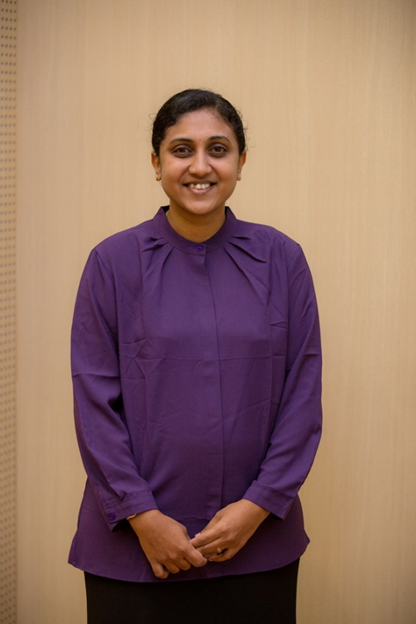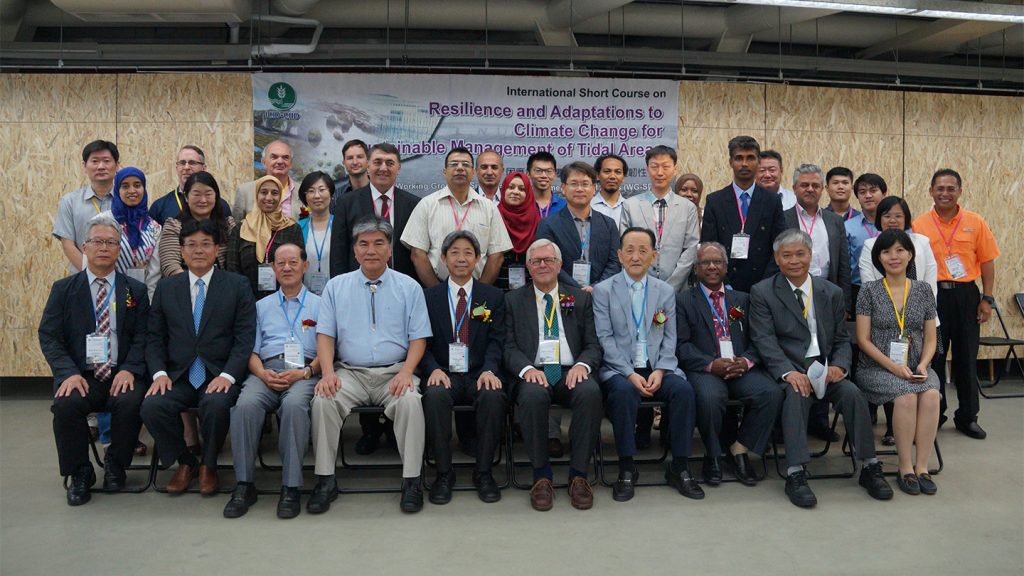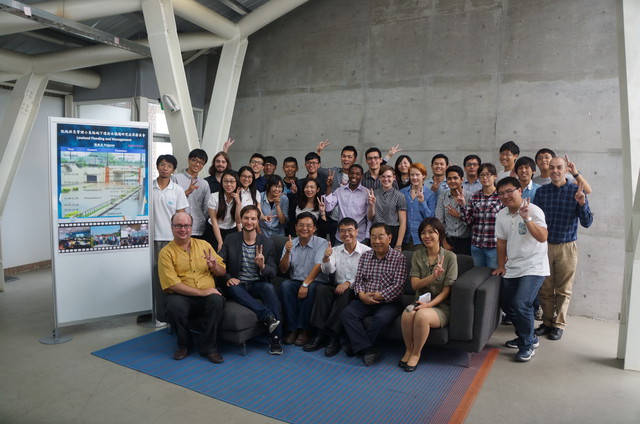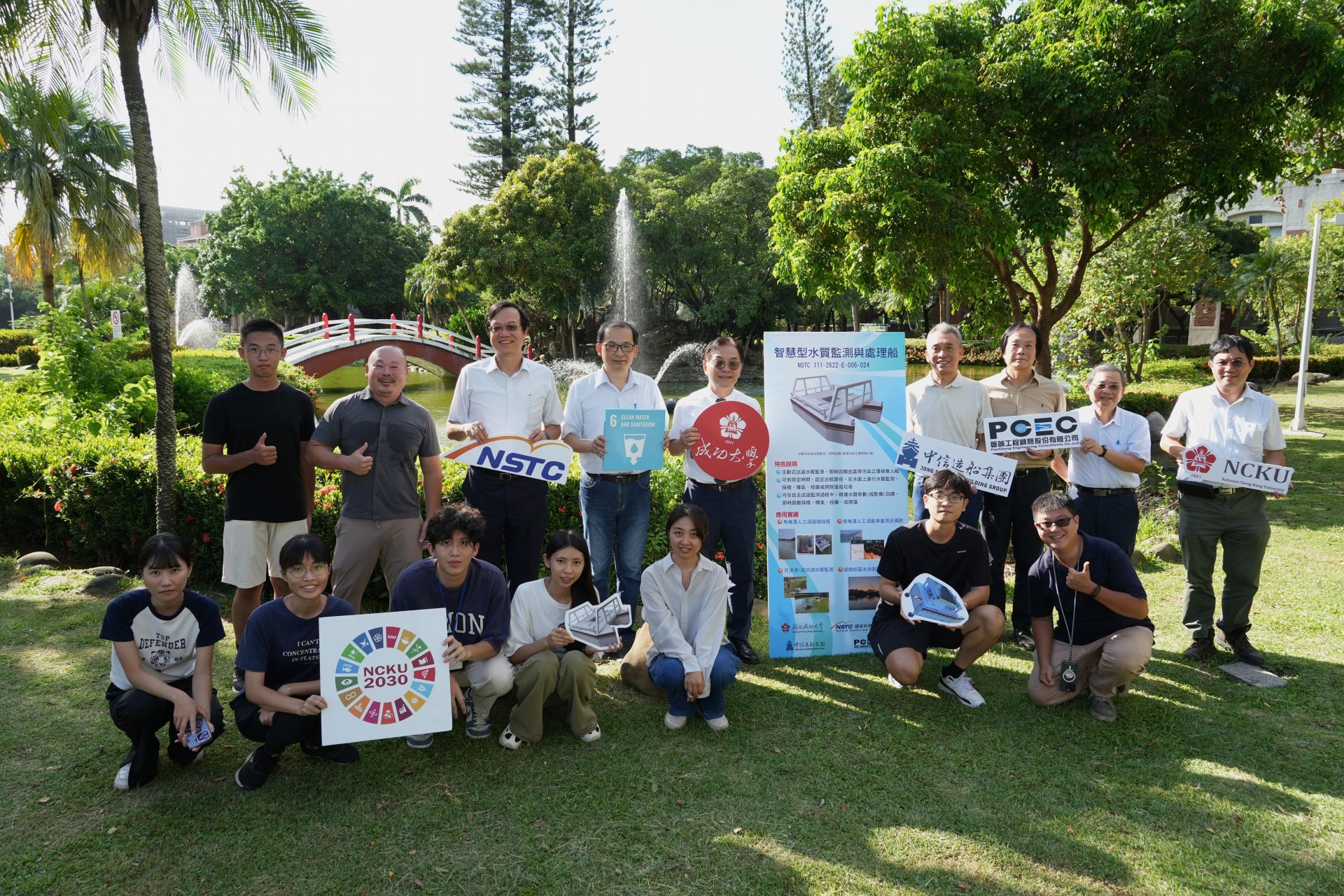Dr. Sarva Mangala Praveena receives the 2018 Gro Brundtland Week of Women in Sustainable Development from Dr. Gro Harlem Brundtland, Tang Prize Foundation and NCUK President Huey-Jen Jenny Su at NCKU, April 3rd.
Endorsed by Dr. Gro Harlem Brundtland, granted by Tang Prize Foundation and organized by NCKU, the Gro Brundtland Week of Women in Sustainable Development commits to engage the outstanding female researchers for public health and sustainable development. It empowers an international platform for collaboration and partnership of female researchers in Taiwan and developing countries. Dr. Praveena says, “This award means recognition and appreciation for my research work achievements, for the job that I love and passionate till today.” Dr. Praveena is the associate professor of Department of Environmental and Occupational Health at Faculty of Medicine and Health Sciences, University Putra Malaysia, specialized in environmental analysis and human health risk assessment.
Research Highlights
Dr. Praveena’s research topics were related with environmental analysis and human health risk assessment, involving various types of water samples (beach water, drinking water, surface water and wastewater, low cost water filter), urban soil and dust, marketed rice and microbeads.
Her water-related research topics include the health symptoms among beach visitors due to beach water exposure, heavy metal in drinking water incorporated with health risk assessment. Some of her research findings provide baseline values to broaden current knowledge of emerging pollutant (steroid hormones) contamination in water bodies in Malaysia. Her greywater purification study shows heavy metal (Cu, Cd, Pb and Ni) can be removed with banana stem waste, exploring its great potential as a raw material for activated carbon production and greywater treatment.
Dr. Praveena also points out the importance to consider bioavailability pollutant form as accurate pollutant concentration in health risk assessment for future study, with her studies involving soil and dust in urban areas. Her microbeads study findings have outlined as an indicator on global occurrence of microplastics pollution due to personal care products, which is limited, found in Southeast Asia.
Dr. Praveena is also the inventor of a water filtration unit, low cost, foldable, easy to transport and assemble. It uses silver nanoparticles coating on cellulose paper to filter and provide clean drinking water and the performance efficacy scores for six sustainability criteria, suitable for emergency use. SODIS and chlorination are suitable for emergency use, but their dependence on UV penetration and chlorine disinfection efficiency would be an issue. Comparatively, the filters made with ceramic and biosand would suit for daily use with higher performance index, but it will decline if regular cleaning is not in place.
“Rapid urbanization will increase the pollution loadings.” Dr. Praveena concludes. “Assuring safe drinking-water from sustainable water resources is one of the crucial factors in public health and sustainable development to every country in the world.”
Dr. Praveena notes, to all those women who would like to pursue your career in field of science, “having a career as a female scientist is full of challenges, thus you need to love what you do, open for learning new things every day, face all the challenges and push yourself outside of your comfort zone. Enjoy small and also big achievements in your career, this will increase your confidence level. Lastly, you have to work really hard. It is because at the end of the day, nothing can beat the hard work in order to be successful in your career.”
Endorsed by Dr. Gro Harlem Brundtland, granted by Tang Prize Foundation and organized by NCKU, the Gro Brundtland Week of Women in Sustainable Development commits to engage the outstanding female researchers for public health and sustainable development. It empowers an international platform for collaboration and partnership of female researchers in Taiwan and developing countries. Dr. Praveena says, “This award means recognition and appreciation for my research work achievements, for the job that I love and passionate till today.” Dr. Praveena is the associate professor of Department of Environmental and Occupational Health at Faculty of Medicine and Health Sciences, University Putra Malaysia, specialized in environmental analysis and human health risk assessment.
Research Highlights
Dr. Praveena’s research topics were related with environmental analysis and human health risk assessment, involving various types of water samples (beach water, drinking water, surface water and wastewater, low cost water filter), urban soil and dust, marketed rice and microbeads.
Her water-related research topics include the health symptoms among beach visitors due to beach water exposure, heavy metal in drinking water incorporated with health risk assessment. Some of her research findings provide baseline values to broaden current knowledge of emerging pollutant (steroid hormones) contamination in water bodies in Malaysia. Her greywater purification study shows heavy metal (Cu, Cd, Pb and Ni) can be removed with banana stem waste, exploring its great potential as a raw material for activated carbon production and greywater treatment.
Dr. Praveena also points out the importance to consider bioavailability pollutant form as accurate pollutant concentration in health risk assessment for future study, with her studies involving soil and dust in urban areas. Her microbeads study findings have outlined as an indicator on global occurrence of microplastics pollution due to personal care products, which is limited, found in Southeast Asia.
Dr. Praveena is also the inventor of a water filtration unit, low cost, foldable, easy to transport and assemble. It uses silver nanoparticles coating on cellulose paper to filter and provide clean drinking water and the performance efficacy scores for six sustainability criteria, suitable for emergency use. SODIS and chlorination are suitable for emergency use, but their dependence on UV penetration and chlorine disinfection efficiency would be an issue. Comparatively, the filters made with ceramic and biosand would suit for daily use with higher performance index, but it will decline if regular cleaning is not in place.
“Rapid urbanization will increase the pollution loadings.” Dr. Praveena concludes. “Assuring safe drinking-water from sustainable water resources is one of the crucial factors in public health and sustainable development to every country in the world.”
Dr. Praveena notes, to all those women who would like to pursue your career in field of science, “having a career as a female scientist is full of challenges, thus you need to love what you do, open for learning new things every day, face all the challenges and push yourself outside of your comfort zone. Enjoy small and also big achievements in your career, this will increase your confidence level. Lastly, you have to work really hard. It is because at the end of the day, nothing can beat the hard work in order to be successful in your career.”























